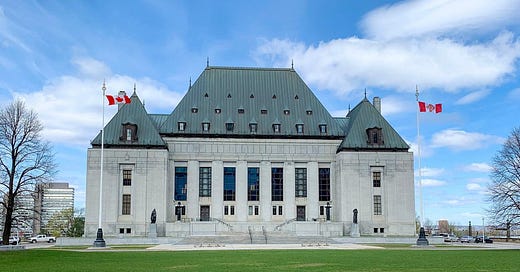Supreme Court of Canada rules that the government does not have absolute immunity from liability for damages caused by unconstitutional legislation in a landmark ruling
The Supreme Court of Canada has issued a landmark ruling in the case of Canada (Attorney General) v. Power, 2024 SCC 26, affirming that individuals can claim damages for violations of their Charter rights caused by unconstitutional legislation.
The case involved Joseph Power, who found himself permanently ineligible for a criminal record suspension due to retrospective changes in legislation. These changes, enacted by Parliament, affected his employment opportunities and infringed upon his rights under sections 11(h) and 11(i) of the Canadian Charter of Rights and Freedoms. These sections protect individuals from double jeopardy and guarantee the right to benefit from the lesser punishment when laws change.
The central issue was whether the state could be held liable for damages under section 24(1) of the Charter for enacting unconstitutional legislation. The Attorney General of Canada acknowledged that the law's retrospective application violated Power's Charter rights but argued that the state should be immune from damages claims for legislative actions.
In a decision led by Chief Justice Wagner and Justice Karakatsanis, the Supreme Court ruled that the state does not have absolute immunity from liability for damages caused by unconstitutional legislation. The Court emphasized the following points:
The Court's judgment emphasized several crucial points. First, it underscored the courts' fundamental duty to protect Charter rights from state infringement, which includes providing remedies such as damages. Second, the judgment clarified that the state cannot claim absolute immunity from damages for enacting laws that violate Charter rights. However, it noted that limited immunity might apply unless the law was enacted in bad faith or constituted an abuse of power. Lastly, the ruling balanced the need to protect individual rights with the necessity of legislative autonomy. It acknowledged that while legislatures must be able to govern effectively, they are also accountable for unconstitutional actions.
The Supreme Court dismissed the Attorney General's appeal, confirming that damages may be awarded under section 24(1) of the Charter when the legislation in question is clearly unconstitutional or enacted in bad faith. This ruling sets a significant precedent, ensuring that individuals have a pathway to seek redress for rights violations caused by legislative actions.
The decision underscores the importance of judicial oversight in upholding the Charter and provides a crucial check on legislative power. It clarifies that while legislative bodies have broad powers, they are not above scrutiny and must be accountable for actions that infringe on constitutional rights.
This ruling is expected to influence how legislatures approach the drafting and enactment of laws, ensuring greater adherence to Charter principles and protection of individual rights.
You can read the ruling at the link below.
https://decisions.scc-csc.ca/scc-csc/scc-csc/en/20546/1/document.do





Make sure any payments come out of their personal bank accounts including their hidden offshore accounts….and NOT THE TAX PAYERS DIME….SEEMS THE TAX PAYERS ALWAYS GET STUCK PAYING THE BILL…..WE DIDN’T FORCE TGE FAKE JABS ON ANYONE….OLIGARCH BOUGHT FUCKHEADS ARE RESPONSIBLE.
Hi,
Wondering if this ruling can be the basis of a letter to my MP with regards to his/her legal liability?
Can any MP of a government be held legally accountable and face charges during the government's time in power?